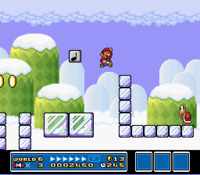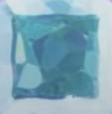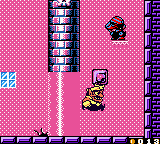Ice Block: Difference between revisions
LinkTheLefty (talk | contribs) No edit summary |
Nintendo101 (talk | contribs) mNo edit summary |
||
| Line 1: | Line 1: | ||
{{redirect|Icy platform|the large platform first seen in | {{redirect|Icy platform|the large platform first seen in New Super Mario Bros. Wii|[[ice platform]]}} | ||
{{item infobox | {{item infobox | ||
|image=[[File:SMM3DS Art - Ice Block.png|150x150px]]<br>Artwork from ''[[Super Mario Maker for Nintendo 3DS]]'' | |image=[[File:SMM3DS Art - Ice Block.png|150x150px]]<br>Artwork from ''[[Super Mario Maker for Nintendo 3DS]]'' | ||
Latest revision as of 20:48, January 16, 2025
- "Icy platform" redirects here. For the large platform first seen in New Super Mario Bros. Wii, see ice platform.
| Ice Block | |||
|---|---|---|---|
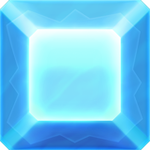 Artwork from Super Mario Maker for Nintendo 3DS | |||
| First appearance | Yume Kōjō: Doki Doki Panic (1987, overall) Super Mario Bros. 2 (1988, Super Mario franchise) | ||
| Latest appearance | Mario vs. Donkey Kong (2024) | ||
| Effect | Slippery when walked on | ||
| Variant of | Block Ice | ||
| |||
| |||
Ice Blocks (occasionally lowercased)[1] are recurring blocks in the snow-themed levels of the Super Mario franchise. In platforming titles, Ice Blocks have slippery surfaces that reduce the player character's traction, similar to the ice that debuted in Mario Bros. The player is often given means to melt Ice Blocks, such as fire watermelons or Fire Flowers. They first appear in Yume Kōjō: Doki Doki Panic and debuted in the franchise proper through the Western adaptation Super Mario Bros. 2.
History[edit]
Super Mario series[edit]
Yume Kōjō: Doki Doki Panic / Super Mario Bros. 2[edit]
Icy platforms,[2][3][4][5] also referred to as ice platforms,[2][3][6] are objects in Yume Kōjō: Doki Doki Panic and its Western release, Super Mario Bros. 2. They first appear in World 4-1. These ice-covered blocks are slippery and semisolid, unlike later appearances.
Super Mario Bros. 3 / Super Mario Advance 4: Super Mario Bros. 3[edit]
In Super Mario Bros. 3 and its remake, Ice Blocks appear commonly throughout Ice Land, where they mostly make up the level structure in its airborne levels. Like in Yume Kōjō: Doki Doki Panic and Super Mario Bros. 2, they act as slippery platforms; these Ice Blocks can be normal (the size of a brick) or giant-sized (two times bigger, like Big Blocks).
A rarer type of ice block[7] also exists; it is transparent and can be melted by fireballs from Mario and Luigi's Fire form. Some contain coins, while others contain Munchers.
A third type of Ice Block, titled the White Block, also appears throughout Ice Land. Unlike the other types, these resemble white or light blue bricks, are not slippery, and can be picked up and thrown.
Super Mario World[edit]
A few Ice Blocks appear in the level Awesome in Super Mario World. None of them can be picked up, as they merely serve as slippery platforms like most of the terrain in the level. They appear as light blue Rotating Blocks.
Super Mario 64 / Super Mario 64 DS[edit]
In Super Mario 64, grounded ice blocks are routinely shot out of the ice block shooter in Snowman's Land. The ice block shooter is placed on the normal route to Snowman Mountain, and its ice blocks are triangular waves that stop and disappear into the ground before reaching the freezing pond. After every four small ice blocks are shot, a large one is shot. The ice blocks attempt to push Mario into the freezing pond and require timing to jump over as they are indestructible.
In Super Mario 64 DS, additional forms are introduced. Blocks of Ice[8] appear in the ice-themed courses Cool, Cool Mountain and Snowman's Land. They can be melted only with Yoshi's fire breath, and they often contain items such as Red Coins. In the latter course, they can be melted to collect a Power Star for Yoshi's Ice Sculpture. Additionally, massive Ice Blocks[9] (referred to as ice cubes)[10] appear in Chief Chilly Challenge. They serve as indestructible moving platforms.
Super Mario Sunshine[edit]
Ice blocks[11][12] (also called ice cubes)[13][14] were made into transparent blocks giving off an icy mist in Super Mario Sunshine, and they can be melted with FLUDD. Large ice blocks appear in special stages, and small ones containing items can be found in Noki Bay and the Delfino Airstrip.
New Super Mario Bros.[edit]
Ice Blocks retain their usual role in New Super Mario Bros., where they appear in levels of World 5.
New Super Mario Bros. Wii[edit]
In New Super Mario Bros. Wii, there are six types of Ice Blocks: standard Ice Blocks that act as slippery platforms and cannot be picked up or destroyed, Ice Blocks that consist of enemies frozen by an Ice Flower or other ice projectile, Ice Blocks that can be picked up and thrown at enemies in World 3-4, World 3-5, World 6-1, World 9-5, and World ![]() Coin-5 similarly to Grab Blocks (they cannot hurt players, unlike barrels), frozen-over Snake Blocks called Ice Snake Blocks that only appear in World 3-
Coin-5 similarly to Grab Blocks (they cannot hurt players, unlike barrels), frozen-over Snake Blocks called Ice Snake Blocks that only appear in World 3-![]() Castle, giant Ice Walls (in the same level mentioned) that can only be destroyed using Bob-ombs, and Ice Blocks that only appear in World 9-7, which, as in Super Mario Bros. 3, can contain coins and Munchers and can be melted with fireballs from a Fire Flower or enemy.
Castle, giant Ice Walls (in the same level mentioned) that can only be destroyed using Bob-ombs, and Ice Blocks that only appear in World 9-7, which, as in Super Mario Bros. 3, can contain coins and Munchers and can be melted with fireballs from a Fire Flower or enemy.
New Super Mario Bros. 2[edit]
The Ice Blocks of New Super Mario Bros. 2 cause player characters to skid, as usual. They appear in levels of World 4.
New Super Mario Bros. U / New Super Luigi U / New Super Mario Bros. U Deluxe[edit]
Ice Blocks also function as platforms in New Super Mario Bros. U, New Super Luigi U, and their port. Giant Ice Chunks also make an appearance in the level Piranha Plants on Ice. In the level, they are found on top of Frozen Coins, which will melt when hit by fireballs. When its Frozen Coin is melted, the Ice Chunk falls to the ground, which causes it to block some areas or crush Mario or enemies.
Super Mario Maker subseries[edit]
Ice Blocks appear in Super Mario Maker, its port, and Super Mario Maker 2. They appear only as slippery platforms in all of the level styles and cannot be picked up. They also cannot be melted with fire. They are given new sprites for the Super Mario Bros. and Super Mario World styles. The only difference with Ice Blocks in Super Mario Maker 2 is their presence in the added Super Mario 3D World style.
Super Mario Bros. Wonder[edit]
Ice Blocks reappear in Super Mario Bros. Wonder. They can be melted from one of Fire Mario's fireballs, like in New Super Mario Bros. and its sequels.
Donkey Kong (Game Boy)[edit]
Ice Blocks are in several Iceberg stages in the Game Boy version of Donkey Kong. They appear as small blocks of ice that are often used as a puzzle element involving Faiachū, which melt them as they walk over them.
Yoshi's Island series[edit]
Ice Blocks appear in Super Mario World 2: Yoshi's Island and Yoshi's Island DS, working as they do in the Super Mario series, though are melted by different things between each game: In Super Mario World 2: Yoshi's Island, Ice Blocks can be melted by Yoshi's fire breath after eating a red watermelon, Lava Bubble, or Flamer Guy, but in Yoshi's Island DS, only Baby Bowser and Scorchits, especially the latter, which can melt more types of Ice Blocks.
Wario Land II[edit]
Ice blocks are rare objects within Wario Land II. They appear as small translucent blocks, and are very fragile. Ice blocks can be picked up and used as a throwing weapon to defeat or stun enemies or to break Enemy Blocks. If the ice block falls to the ground or is attacked, it shatters. However, the ice block will respawn if Wario walks away from it and then returns. They are first encountered in a level called Defeat Four Ducks!. It is deployed in various rooms throughout Syrup Castle and can be used to progress through the fortress. The player needs to use the ice blocks to knock down one of the four D.D.s from an unreachable location, and to smash through a staple of Enemy Blocks.
Objects with similar properties, small barrels, can be found in Wario Land 3.
Nintendo Badge Arcade[edit]
Ice Blocks from the Super Mario World style of Super Mario Maker appear as collectible badges in Nintendo Badge Arcade.
Yoshi's Woolly World / Poochy & Yoshi's Woolly World[edit]
Ice Blocks return in Yoshi's Woolly World and its remake, appearing in the levels Fluffy Snow, Here We Go! and Frozen Solid and Chilled. They can melt from the effects of fire from a fire watermelon, like in Super Mario World 2: Yoshi's Island, but they can also be melted by Flooffs.
Mario vs. Donkey Kong (Nintendo Switch)[edit]
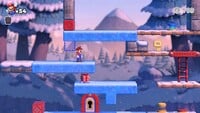
In the Nintendo Switch remake of Mario vs. Donkey Kong, Ice Blocks appear alongside semisolid variants as part of various terrain in Slippery Summit and its corresponding plus world. A slippery traction is applied to players and Mini-Marios as they walk over ice blocks, and Shy Guys appear to walk on them with slippery traction. Thrown objects can continuously slide across ice blocks before either hitting a wall (which will make them rebound in the other direction with a slower sliding speed) or landing onto non-slippery terrain. Keys will also still run their timer even when sliding across Ice Blocks.
If a player jumps while on an Ice Block, they will perform a spinning animation similar to when jumping off icy terrain in 3D games like Super Mario 3D World. The player can also duck while sliding across Ice Blocks, allowing them to slide underneath small gaps. Slippery traction can be cancelled by performing a Handstand, but the player will still gain slippery traction when performing a Handstand Walk.
Gallery[edit]
- For this subject's image gallery, see Gallery:Ice Block.
Super Mario Maker (Super Mario Bros. style)
Super Mario Maker (Super Mario Bros. 3 style)
Super Mario Maker (Super Mario World style)
Super Mario Maker (New Super Mario Bros. U style)
Names in other languages[edit]
Ice Block[edit]
| Language | Name | Meaning | Notes |
|---|---|---|---|
| Japanese | 氷ブロック[?] Kōri Burokku |
Ice Block | |
Kōri no Burokku |
Iced Block | ||
Kōri |
Ice | ||
| 氷床[18] Kōri Yuka |
Ice Floor | New Super Mario Bros. Wii, platform and thawable versions | |
| Chinese (simplified) | 冰冻砖块[?] Bīngdòng Zhuānkuài |
Icy Block | |
| Chinese (traditional) | 冰凍磚塊[?] Bīngdòng Zhuānkuài |
Icy Block | |
| Dutch | IJsblok[?] | Ice Block | |
| French | Bloc de glace[?] | Ice block | |
| German | Eis-Block[?] | Ice Block | |
| Italian | Blocco di ghiaccio[?] | Ice block | |
| Korean | 얼음블록[?] Eoreum Beullok |
Ice Block | |
| Russian | Ледяной блок[?] Ledyanoy blok |
Icy Block | |
| Spanish (NOA) | Bloque de hielo[?] | Ice block |
Ice block shooter[edit]
| Language | Name | Meaning | Notes |
|---|---|---|---|
| Japanese | アイスブロックシューター[?] Aisu burokku shūtā |
Ice block shooter | |
| Chinese | 冰块射手[?] Bīng kuài shèshǒu |
Ice buck shooter | |
| French | machine à cracher des glaçons[?] | Ice block spitting machine | |
| Italian | Fonte dei Blocchi di Ghiaccio[19] | Ice Block Source |
References[edit]
- ^ Browne, Catherine (May 23, 2010). Super Mario Galaxy 2: PRIMA Official Game Guide. Roseville: Random House Inc. ISBN 978-0-30746-907-6. Page 127.
- ^ a b Arnold, J. Douglas, James Yamada, and Mark Elies (June 4, 2001). Super Mario Advance Official Perfect Guide. Versus Books. ISBN 0-9706468-4-4. Page 49.
- ^ a b Stratton, Bryan (June 7, 2001). Super Mario Advance Prima's Official Strategy Guide. Prima Games (American English). ISBN 0-7615-3633-7. Page 42.
- ^ Wessel, Craig (2001). Super Mario Advance: Choose Your Own Adventure!. New York: Scholastic. ISBN 0-439-36708-5. Page 33.
- ^ Rocha, Garitt, and Nick von Esmarch (November 11, 2016). Playing With Power: Nintendo NES Classics. Prima Games (American English). ISBN 9780744017779. Page 155.
- ^ Wessel, Craig (2001). Super Mario Advance: Choose Your Own Adventure!. New York: Scholastic. ISBN 0-439-36708-5. Page 43.
- ^ "ICE AND BLUE BRICK BLOCKS Ice and blue brick blocks interest Mario because they both occur infrequently and have separate properties. Throw blue blocks at enemies, and thaw ice blocks with Fire Flower firings—just don’t drop onto something nasty when you’re melting them!" – Hodgson, David S J (October 21, 2003). Super Mario Advance 4: Super Mario Bros. 3 Prima's Official Strategy Guide. Prima Games (American English). ISBN 0-7615-4425-9. Page 12.
- ^ 2004. Super Mario 64 DS instruction booklet. Nintendo of America (American English). Page 28.
- ^ Super Mario 64 DS internal object name (EWM_ICE_BLOCK)
- ^ "Finally, slowly and carefully get across a gap on giant moving ice cubes." – Knight, Michael (March 16, 2010). Nintendo DS Pocket Guide. Prima Games (American English). ISBN 978-0-307-46760-7. Page 375.
- ^ Averill, Alan, and Jennifer Villarreal (2002). Super Mario Sunshine Player's Guide. Nintendo of America (American English). ISBN 1-930206-23-2. Page 87.
- ^ Hodgson, David S J, Bryan Stratton, and Stephen Stratton (September 3, 2002). Super Mario Sunshine Prima's Official Strategy Guide. Prima Games (American English). ISBN 0-7615-3961-1. Page 14, 125, and 147.
- ^ Loe, Casey (August 12, 2002). Super Mario Sunshine Perfect Guide. Versus Books (American English). ISBN 1-931886-09-1. Page 80.
- ^ Bogenn, Tim, and Doug Walsh (2002). Super Mario Sunshine Official Strategy Guide. BradyGAMES (American English). ISBN 0-7440-0180-3. Page 96.
- ^ August 20, 1994. 「任天堂公式ガイドブック ドンキーコング」 (Nintendo Kōshiki Guidebook – Donkey Kong). Shogakukan (Japanese). ISBN 4-09-102485-8. Page 64.
- ^ Wario Land 2: Nusumareta Zaihō guide. Shogakukan (Japanese). ISBN 4-09-102658-3. Page 91.
- ^ 2004. スーパーマリオ64DS (Sūpā Mario 64 DS) instruction booklet. Nintendo (Japanese). Page 28.
- ^ Sakai, Kazuya (Ambit) et al. (October 19, 2015). Super Mario Bros. Hyakka: Nintendo Kōshiki Guidebook, New Super Mario Bros. Wii section. Shogakukan (Japanese). ISBN 978-4-09-106569-8. Page 150.
- ^ November 15, 2018. Super Mario Bros. Enciclopedia. Magazzini Salani (Italian). ISBN 889367436X. Page 91.
- Blocks
- Donkey Kong (Game Boy)
- Mario vs. Donkey Kong objects
- New Super Luigi U objects
- New Super Mario Bros. objects
- New Super Mario Bros. 2 objects
- New Super Mario Bros. U objects
- New Super Mario Bros. Wii objects
- Super Mario 64 objects
- Super Mario 64 DS objects
- Super Mario Advance objects
- Super Mario Advance 4: Super Mario Bros. 3 objects
- Super Mario Bros. 2 objects
- Super Mario Bros. 3 objects
- Super Mario Bros. Wonder objects
- Super Mario Maker objects
- Super Mario Maker 2 objects
- Super Mario Sunshine objects
- Super Mario World objects
- Super Mario World 2: Yoshi's Island objects
- Wario Land II objects
- Yoshi's Island DS objects
- Yoshi's Island: Super Mario Advance 3
- Yoshi's Woolly World objects
